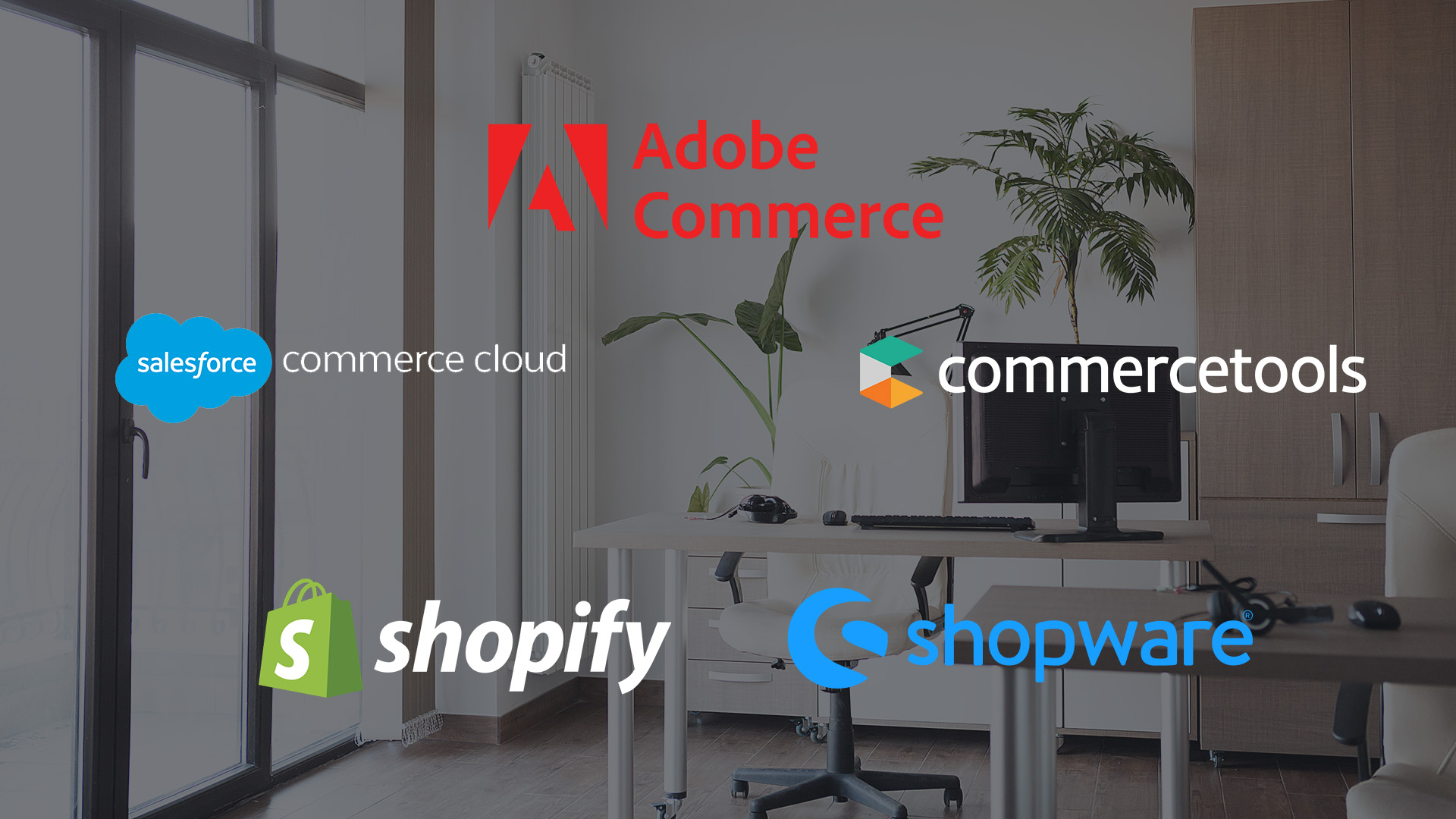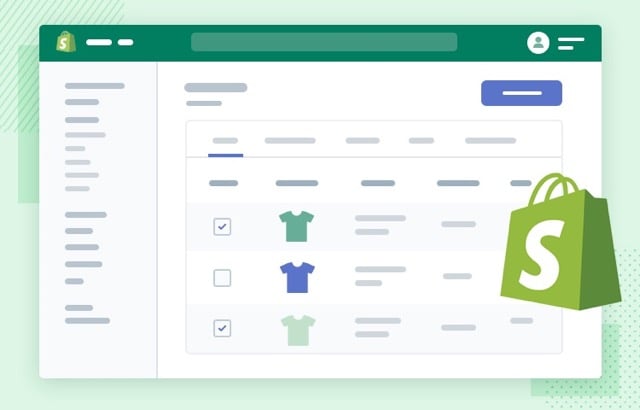BigCommerce is one of the most popular platforms for creating and managing eCommerce stores. However, it's far from being the only eCommerce solution on the block. To help you choose a platform that will set your business up for success, we've compiled a list of BigCommerce competitors that includes the key features, benefits, and drawbacks you need to know about each one.
1. Shopify
Arguably the most recognizable of all online shopping platforms, Shopify is an eCommerce giant with over 2 million live stores running on the Shopify platform. A user-friendly interface and plenty of customization options are two of the big reasons why Shopify has reached its current level of popularity. Another key benefit of the platform is that it's a highly scalable solution, allowing businesses to easily upgrade their Shopify plan to access new features and capabilities as their business grows.
Depending on the plan you choose, Shopify offers a wide range of features and apps designed to help you build your eCommerce store and attract customers. A few of these key features include things like a drag-and-drop online store builder, automated inventory management tools, multi-channel selling, and an advanced suite of marketing and SEO tools.
However, while Shopify is a versatile and widely used solution, the platform does have a few drawbacks. For one, Shopify is a hosted platform. This simplifies setup and maintenance, but it also means businesses have less control over their website compared to self-hosted solutions.
2. Adobe Commerce (Magento)
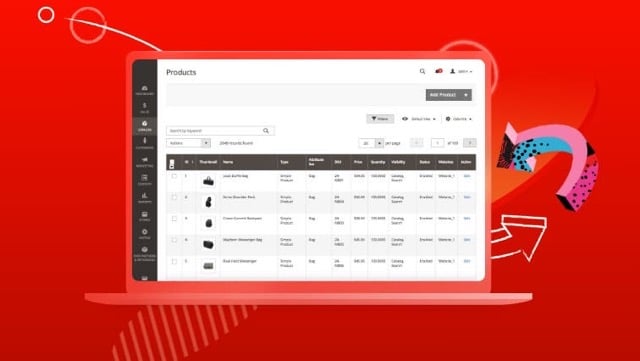
Another wildly popular eCommerce platform, Adobe Commerce (better known as Magento) is an open-source eCommerce solution that offers an impressive list of features and functionalities. As an open-source platform, Magento provides developers with access to the source code, allowing developers to modify the platform's functionality and create custom features and integrations. Along with this and a robust set of features that are ready to use right out of the box, another key benefit of Magento is its large and active community of developers, designers, and merchants who provide community support and continually contribute to the platform's growth and development.
Speaking of features that are ready to go right out of the box, Magento offers a long list of advanced tools and features that includes things like sophisticated project management tools, insightful analytics and reporting features, marketing and promotion tools, and a wide range of third-party extensions, apps, and integrations.
It is worth noting, though, that Magento's massive list of features does present some drawbacks, namely the fact that the platform often requires a steep learning curve and isn't quite as user-friendly as some other options on our list. Unlike hosted platforms such as Shopify and BigCommerce, Magento also requires businesses to manage hosting and server infrastructure, adding another layer of complexity and responsibility.
3. Salesforce Commerce Cloud
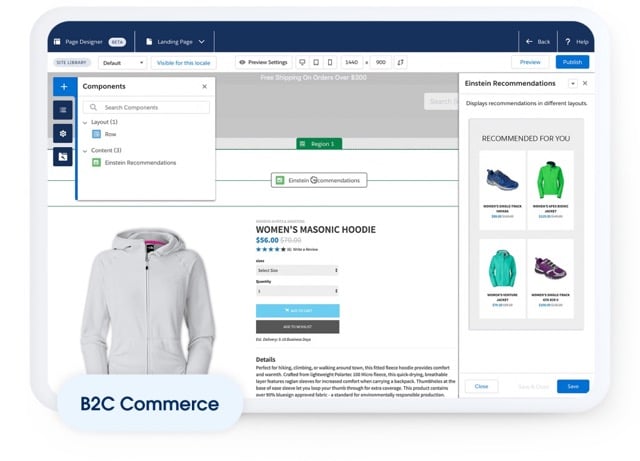
Formerly known as Demandware, Salesforce Commerce Cloud is an eCommerce platform with a lot of unique features and benefits. This starts with the platform's omnichannel capabilities that allow business owners to deliver seamless shopping experiences across multiple channels, including web, mobile, social media, and in-store. Salesforce Commerce Cloud also offers a deep integration with Salesforce's customer relationship management (CRM) platform. This allows eCommerce store owners to unify customer data, insights, and interactions across sales, marketing, and customer service channels.
Other key features that set Salesforce Commerce Cloud apart include features such as AI-powered tools for delivering personalized shopping experiences, real-time analytics and insights, and a global reach thanks to multi-language and multi-currency support.
Like Magento, Salesforce Commerce Cloud is a relatively complex platform that may take some time to master. The platform also has somewhat limited customization options compared to some others on our list, and its licensing fees and implementation costs are a little on the steep end.
4. Commercetools
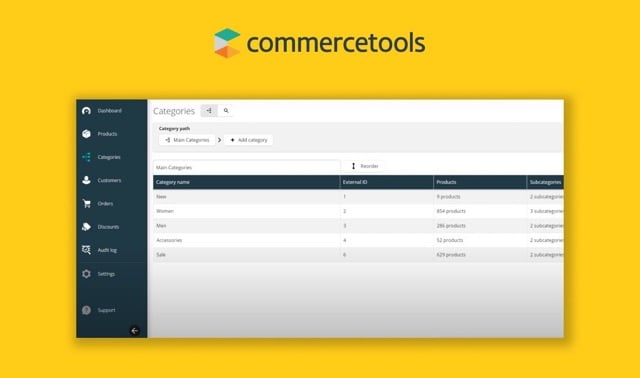
Commercetools is a platform that allows you to build a headless eCommerce solution (and no, this isn't nearly as graphic or frightening as it sounds!). By utilizing a headless architecture, Commercetools separates the frontend presentation layer from the backend commerce functionality, allowing businesses to create highly customized and flexible storefronts using any frontend technology or framework. Commercetools also used an API-first approach, providing a comprehensive set of APIs for building, extending, and integrating commerce functionality.
The end result of this headless architecture and API-first approach is a platform that is highly scalable, flexible, and customizable. In addition to this, Commercetools also offers key features such as real-time data and insights, global support, and software development kits (SDKs) designed to help developers create custom features and integrations.
Like many of the more advanced and customizable eCommerce solutions, Commercetools does require a bit of a learning curve. In many cases, business owners may need assistance from developers or technical experts to build and implement advanced customization and integrations.
5. Shopware
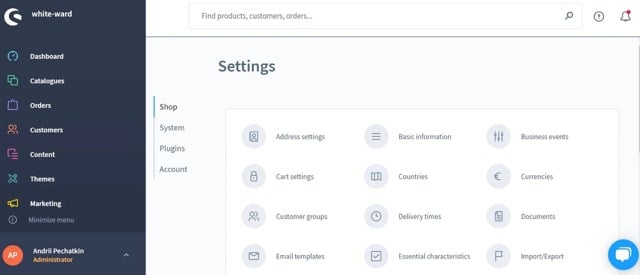
The final BigCommerce competitor on our list, Shopware is an advanced yet user-friendly solution that offers plenty of features in an interface that is intuitive and easy to use. Thanks to drag-and-drop functionality, customizable dashboards, and visual editors, Shopware lets you manage products, orders, customers, and marketing campaigns with ease.
As for key features, Shopware offers everything business owners need to build and manage a successful online store. This includes features such as a customizable storefront, comprehensive order management capabilities, marketing and promotion tools, and detailed analytics/reporting features.
One of the only drawbacks of Shopware is that it isn't quite as customizable as open-source solutions such as Magento or headless architecture solutions like Commercetools. Shopware also offers a somewhat limited list of third-party integrations compared to a lot of other eCommerce platforms.
Let Groove Help You Choose the Perfect eCommerce Solution for Your Business
At Groove, we are committed to helping business owners build and manage successful online stores. Along with helping you choose the ideal platform for your needs, Groove can help you build an online store that is perfectly aligned with your brand and business goals. And once your store is live, our industry-leading eCommerce marketing solutions can help you attract as many new customers as possible.
Click here to learn more about Groove's unmatched eCommerce design services, or feel free to contact us today to see how Groove can help your business build a profitable, scalable online store.

eBook
BigCommerce vs Shopify:
Everything You Need to Know
Explore tags:
About the author
Subscribe to the Groove Newsletter
Get the latest updates and insights straight to your inbox



